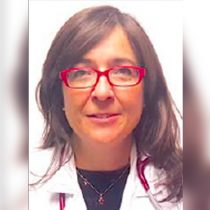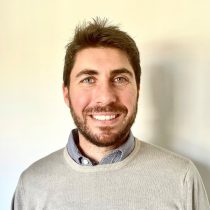Hospital Universitario 12 de Octubre
Area of expertise and Healthcare Provider’s contribution to care for patients within the MetabERN Network
The Unit of Inherited Metabolic Diseases (IMD) belongs to the “12 de Octubre” University Hospital and to the Hospital 12 de Octubre Health Research Institute in Madrid (“i +12”). The activity of the group started in the late ’80s and was focused on the clinical and biochemical characterization of the mitochondrial respiratory chain deficiencies and the identification and characterization of mutations in the mitochondrial DNA. Progressively, the healthcare provider’s area of expertise and contribution to care expanded, as the team did.
Currently, the area of expertise of the Healthcare Provider within the ERN covers all the IMD described so far and the multidisciplinary team includes paediatricians, internists, dieticians, neurologists and neuropediatricians, neuropsychologists, neuroradiologists, neuropathologists, biochemists, geneticists and molecular biologists, all of them with large expertise in inherited metabolic diseases.
Specific focuses are:
- Mitochondrial disorders and pyruvate metabolism
- Carbohydrate and fatty acid oxidation disorders
- Urea cycle, amino- and organic acids related disorders
- Lysosomal disorders
- Porphyrin and hem metabolism disorders
Since 2009, when the expanded neonatal screening was implemented in the Madrid region, the paediatric team is responsible for the detected cases born in the southern area of the region.
Since January 2015, the HCP has been designated as a National Reference Centre (CSUR) for the treatment of IMD by the Spanish Ministry of Health and for this reason receives and manages patients with IMD from all over the country. Since 2016, the center is also part of MetabERN.
Since 2020, the center rely on both pediatric and adult clinical trial units, infrastructures that are permitting the access to patients of more and new treatments, including gene therapies.
Hospital Universitario 12 de Octubre is one of the foremost health care complexes in Spain. It is a National Reference Center for several diseases, permitting the access to all Medical and Surgical paediatric and adults subspecialties, to Neonatal, Paediatric and Adult Intensive Care Units (with ECMO and hemodiafiltration availability) and solid organ transplantation program.
The patient is placed in the centre of the system, in order to improve the quality of care and therefore their quality of life. The team maintains a bilateral communication with the patients’ associations to ensure patient centred care and patient empowerment, performing joint research actions, disseminating the research results, organizing educational and training activities, as dietary workshops.
HCP participates in national and international stable research structures. It belongs to the “CIBER on Rare Diseases” (CIBERER – U723), to the National Genomics Medicine Program (IMPACT of Precision Medicine), to the research network for rare neurological diseases (RareGenomics), to the GENOMIT network (established national hubs for the biochemical and genetic diagnosis and care of patients with mitochondriopathies).
specific treatments and interventions provided by the HCP
- Prevention Area:
- Genetic Counselling for Rare Diseases and Inherited Metabolic Diseases.
- Diagnostic Area:
- Expanded newborn screening programme;
- Biochemical and molecular pre and post-natal diagnosis of all the inherited metabolic diseases;
- Tissue culture and optic-electronic microscopy of muscle biopsy.
- Clinical management and treatment:
- Special dietary and nutritional treatments, including low protein, low fat and ketogenic diets;
- Pharmacological treatments, including enzymatic replacement for lysosomal diseases;
- Intensive therapies, including extracorporeal depuration techniques;
- Development and application of clinical recommendations and guidelines;
- Physiotherapy, occupational therapy, speech therapy.
- Research:
- Participation in phase I/II and II/III clinical trials, including gene therapies;
- Several clinical and basic research projects, specially focused on Primary Mitochondrial Diseases, Porphyrin and hem metabolism disorders;
- Contributing to international registries (U-IMD, EHOD, GENOMIT), leading national registries (urea cycle disorders, mitochondrial diseases and type 1 glutaric aciduria) and biobanks;
- Paediatric to Adult Transition program: multidisciplinary team includes internists and transition program is well-established;
- Education and Training:
- Training of pre and postgraduate students from different healthcare areas (medicine, biology, dietitian).
- Training of patients and families: dietary workshops for patients with fatty acid oxidation, amino- and organic acids- related disorders are organized periodically. A recipe book for special diets was published with the collaboration of patients’ associations and patients and is periodically updated.
- Organizing and collaborating with continuous education medicine program courses on inherited metabolic diseases for health professionals.
- Patient centred care: The group actively participates in several Patients’ Associations’ activities, as like the Spanish Mitochondrial Patients’ Association (AEPMI), Glutaric Aciduria type 1 association (Familia GA1), Niemann pick disease association, the Spanish federation of patients with inherited metabolic diseases (Metabolicos).
Avenida de Córdoba, s/n, 28041 Madrid, Spain



